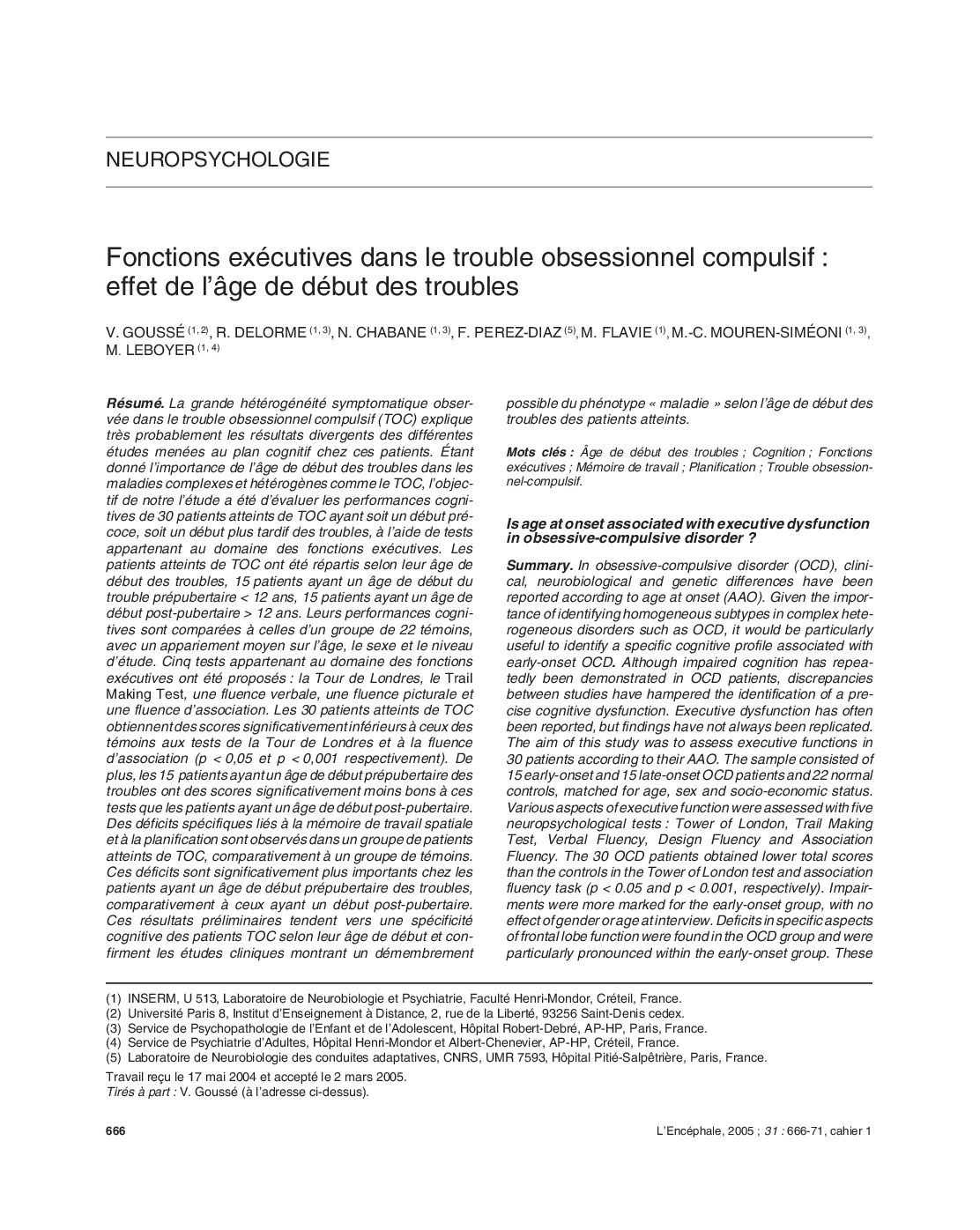| Article ID | Journal | Published Year | Pages | File Type |
|---|---|---|---|---|
| 9379520 | L'Encéphale | 2005 | 6 Pages |
Abstract
In obsessive-compulsive disorder (OCD), clinical, neurobiological and genetic differences have been reported according to age at onset (AAO). Given the importance of identifying homogeneous subtypes in complex heterogeneous disorders such as OCD, it would be particularly useful to identify a specific cognitive profile associated with early-onset OCD. Although impaired cognition has repeatedly been demonstrated in OCD patients, discrepancies between studies have hampered the identification of a precise cognitive dysfunction. Executive dysfunction has often been reported, but findings have not always been replicated. The aim of this study was to assess executive functions in 30 patients according to their AAO. The sample consisted of 15 early-onset and 15 late-onset OCD patients and 22 normal controls, matched for age, sex and socio-economic status. Various aspects of executive function were assessed with five neuropsychological tests : Tower of London, Trail Making Test, Verbal Fluency, Design Fluency and Association Fluency. The 30 OCD patients obtained lower total scores than the controls in the Tower of London test and association fluency task (p < 0.05 and p < 0.001, respectively). Impairments were more marked for the earlyonset group, with no effect of gender or age at interview. Deficits in specific aspects of frontal lobe function were found in the OCD group and were particularly pronounced within the earlyonset group. These findings confirm clinical data suggesting that OCD patients can be subtyped according to age at onset and that OCD patients present unusual cognitive characteristics. They also support the hypothesis that earlyonset OCD might be a relevant subgroup characterised both by a particular clinical profile and by specific cognitive characteristics.
Keywords
Related Topics
Health Sciences
Medicine and Dentistry
Psychiatry and Mental Health
Authors
V. Goussé, R. Delorme, N. Chabane, F. Perez-Diaz, M. Flavie, M.-C. Mouren-Siméoni, M Leboyer,
